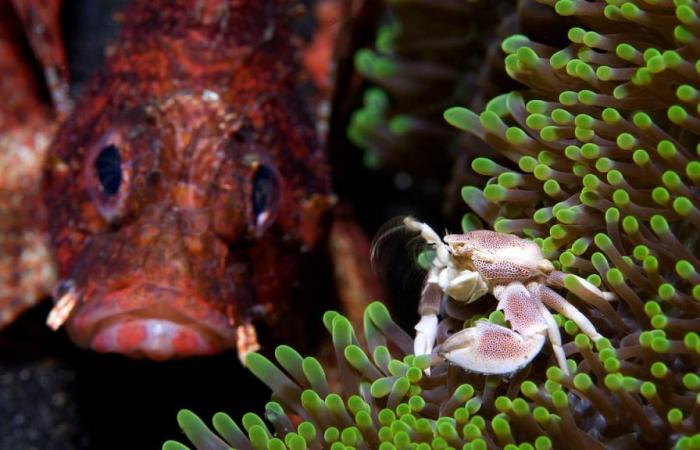26 apr 2024 om 16:56
Researchers from Wageningen University (WUR) warn of an invasion of the lionfish in colder parts of the Mediterranean. According to the scientists, the unexpected territorial expansion of the fish poses a serious threat to biodiversity.
From the study, which the WUR researchers published in the scientific journal NeoBiota, it appears that the ray-finned fish began their invasion a decade ago. From the warmer eastern part of the Mediterranean, the lionfish have rapidly expanded their territory.
In 2024, lionfish have settled in colder parts of the Mediterranean. Previously it was thought that those cold parts of the sea were not suitable for this species. “That is precisely what is so surprising,” WUR researcher Davide Bottacini told NU.nl. These scorpion fish originally come from the Indo-Pacific region. “It also appears that they swim to very deep areas where it is also a lot colder.”
Lionfish seem to be able to adapt quickly: they make local fish their prey without much effort. “It is impressive to see how such a flamboyantly striking predator can approach its prey without being noticed,” says Bottacini, who dived to study the fish in Cyprus, Turkey and Italy. “They have also been spotted in Spain, but we think they are lionfish that have been released from an aquarium.”
‘Lionfish can dramatically influence biodiversity’
The native fish in the Mediterranean, often also protected fish, are not used to lionfish and therefore do not flee. “I think it’s really amazing how easily the lionfish adapts to so many different environments. It’s successful in regions that are so different from the areas it’s native to.”
This success factor of the lionfish may have a downside for the great biodiversity of the Mediterranean. More than 11,000 animal species live in that sea, some of which only live there. “Lionfish have the ability to dramatically influence biodiversity in invaded areas,” the WUR researchers warn.
When asked, Bottacini says that it is not only lionfish that can quickly adapt to new environments. “The fish could also become accustomed to the lionfish and defend themselves better. We do expect an impact on biodiversity based on findings in the Caribbean. We will conduct further research into this in the Mediterranean Sea.”
Om een vraag te kunnen stellen dien je in te loggen. Log in of maak binnen 1 minuut jouw gratis account aan.
Direct inloggen
Gratis account aanmaken
Tags: Lionfish advancing threatens biodiversity Mediterranean Science






